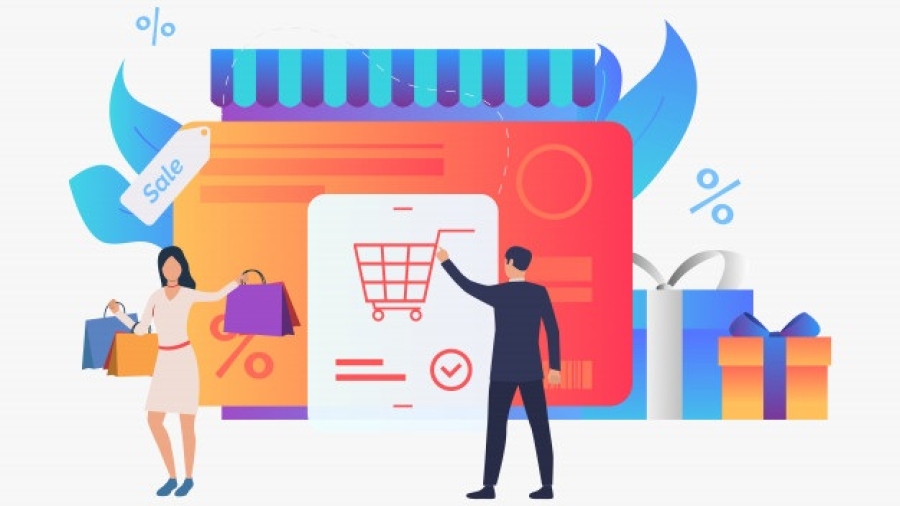For those wishing to launch a specialized transportation service dedicated to handling delicate cargo that requires great care and expertise, there are aspects to consider that can set oneself up for success. Whether shipping irreplaceable artwork, sensitive medical equipment, or other valuable items that cannot withstand typical transportation methods, ensuring these items arrive safely and securely is paramount.
With that said, let’s explore the fundamental steps and best practices for thoughtfully establishing a niche operation focused on care, quality, and peace of mind for clients. Through diligent planning, proper procedures, and well-trained staff, you can build a reputable company providing a vital service that safely connects fragile objects with their destinations.
Write Your Business Plan
A specialized transportation business isn’t an ordinary delivery service since it focuses more on bringing fragile items and objects from one destination to another. Therefore, you have to be thorough when writing your business plan. Conducting market research is crucial, especially since your niche is unique and focused on a particular audience.
Identify your target market, assess competitors, and determine the demand for specialized transportation in your area. Consider what differentiates you from similar services and outline strategies to reach potential clients quickly. A well-made business plan can convince investors to give you enough of a budget to build your business. In exchange, you can offer a share in your business.
Know the Best Business Structure for Your Business
Business structures differ in terms of liability, taxes, and ownership. So, you must be familiar with the various types of business structures that will work for your specialized transportation business. Consult a legal professional to assess which option aligns with your goals and offers the most protection.
Business structures you can choose from:
- Limited Liability Company (LLC)
- Partnership
- C Corporation
- S Corporation
- Sole Proprietorship
Over the past few years, LLC has become a popular choice among entrepreneurs since it offers limited liability protection without the downsides of corporations. However, it doesn’t mean it’s also a good choice for your business. Overall, research and legal advice is highly recommended before you can settle with the best business structure.
Register Your Business, Find Insurance, and Get Licenses/Permits
The next fundamental step is to register your business. You have to gather all the necessary paperwork, which will depend on your state’s requirements. You will also need a federal employer identification number (EIN) and pay any associated fees.
Once done, you must shop for insurance options that will adequately cover your business. Depending on the nature of your specialized transportation service, you may require different types of coverage, such as cargo insurance, general liability insurance, and vehicle insurance.
Additionally, depending on your location and the type of items you plan to transport, you may need specific licenses or permits. Research the requirements for transportation services in your area, such as business permits, commercial driver’s licenses, and hazardous materials endorsements.
Invest in the Right Vehicles
Specialized transportation also rely on specialized equipment. Therefore, you must invest in vehicles that can securely transport fragile items, heavy loads, and large-sized objects. Remember to place Commercial Truck Branding Decals on these vehicles to brand them and make your business easily identifiable.
Based on your market’s current demand, you can quickly determine how many trucks and trailers you’ll need for your business. At the same time, consider other the overhead costs of getting a particular brand, such as maintenance, fuel costs, and the vehicle’s depreciation. Choose brands with efficient fuel usage and low maintenance costs to ensure profitability.
Find the Right People
Since specialized transportation offers additional services for careful handling and prompt delivery, you must hire people with the right expertise. Conduct thorough background checks and ensure your employees have been sufficiently trained on handling delicate cargo, securely packing items, and following proper loading procedures.
Some examples of skills your employees should have:
- Experience with handling fragile, breakable, and expensive items
- Knowledge of proper packing and loading techniques
- Familiarity with specialized transportation regulations and safety protocols
- Excellent communication skills for client interaction
With the right team, you can guarantee the safe and timely delivery of specialty cargo while providing exceptional customer service. These will give your customers the peace of mind they need, knowing their items are safe.
Provide On-Going Training for Your Employees
Specialized transportation services are also evolving, so you must be prepared to train your staff with trends that will guarantee unparalleled services. Consider investing in training programs for your employees that will enhance their skills, keep them updated with the latest technology and regulations, and provide them with growth opportunities.
Of course, these must be free and voluntary as this will benefit your business in the long run. You can ensure consistent quality service and stay ahead of competitors by providing proper training. It gives you more confidence when offering your services since you know what your business and employees are capable of.
Market Your Business
Marketing is necessary for any business. To reach potential clients, consider attending trade shows, networking with other professionals in the industry, and advertising online or through traditional methods. Create a website that showcases your services and what sets you apart from other companies. What’s unique about your business that will make potential customers consider you?
Other forms of marketing you can implement:
- Social media marketing
- Promotional posters and truck decals
- Referral programs
- Guest speaking at industry events
You can attract new clients and establish a reputable brand by successfully marketing your specialized transportation business. They will want to work with you because of your incredible professionalism and reliability.
Manage Your Finances
The most important of all is to keep accurate records of your finances. It’s mostly for record-keeping and tax preparation/filing purposes, which you will do at the end of the year. By meticulously examining your accounting records, you can determine if your business is making a profit or needs adjustments.
At the same time, your business drastically impacts your accounting records, cash flow, and tax payments. Awareness of your finances can prevent hefty fines while complying with local laws. Furthermore, it allows you to make smarter decisions for the future of your business.
Become the Owner of a Specialized Transportation Business Today
Become a go-to source for people’s delicate, expensive items and other specialized transportation needs. As the CEO of your specialized transportation service, you can grow and expand a business based on your expertise, passion, and dedication. It will take time, but with proper planning, you can make your business a success.













